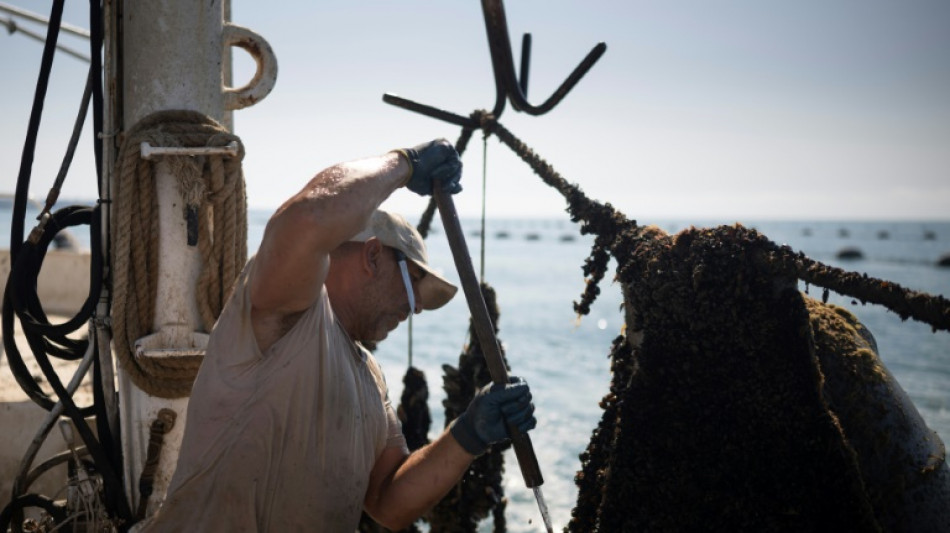
-
 Jamie Melham on Half Yours only second woman to win Melbourne Cup
Jamie Melham on Half Yours only second woman to win Melbourne Cup
-
Myanmar scam hub sweep triggers fraudster recruitment rush

-
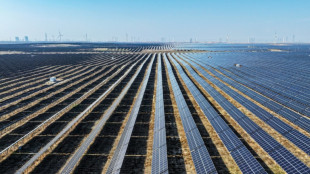 Biggest emitter, record renewables: China's climate scorecard
Biggest emitter, record renewables: China's climate scorecard
-
Floods strand people on roofs as typhoon pounds Philippines
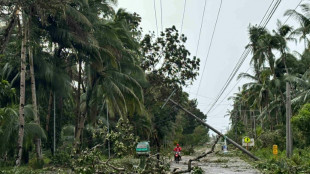
-
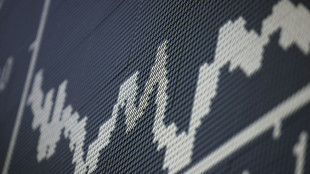 Asian markets swing as trades eye tech rally, US rate outlook
Asian markets swing as trades eye tech rally, US rate outlook
-
South Korea to triple AI spending, boost defence budget

-
 Trott to leave as Afghanistan coach after T20 World Cup
Trott to leave as Afghanistan coach after T20 World Cup
-
Late queen's fashion to go on show at Buckingham Palace
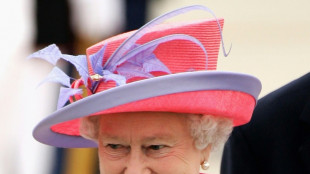
-
 In Morocco, exiled Afghan women footballers find hope on the pitch
In Morocco, exiled Afghan women footballers find hope on the pitch
-
EU scrambles to seal climate deal ahead of COP30
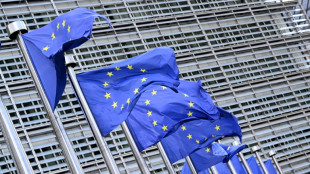
-
 New Yorkers expected to pick leftist Mamdani in stunning election
New Yorkers expected to pick leftist Mamdani in stunning election
-
Pining for Pinochet: how crime fanned nostalgia for Chile's dictator

-
 Why an Amazon chef said no to a vegan dinner for Prince William event
Why an Amazon chef said no to a vegan dinner for Prince William event
-
Cement maker Lafarge on trial in France on charges of funding jihadists
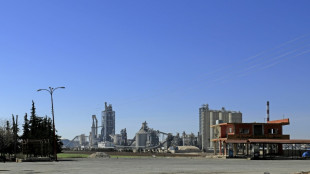
-
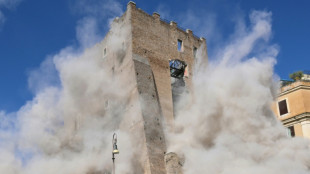 Worker dies after medieval tower partly collapses in Rome
Worker dies after medieval tower partly collapses in Rome
-
Run-machine Labuschagne in form of his life ahead of Ashes

-
 Prince William plays football, volleyball in Rio on climate trip
Prince William plays football, volleyball in Rio on climate trip
-
Jamaicans mobilize aid in aftermath of Melissa's wreckage
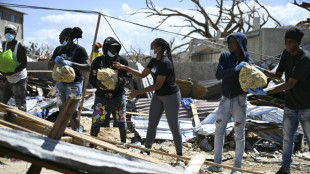
-
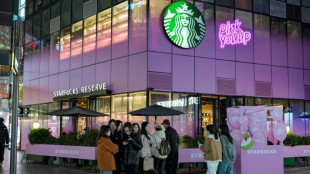 Starbucks cedes China control to Boyu Capital
Starbucks cedes China control to Boyu Capital
-
Worker rescued after medieval tower partly collapses in Rome
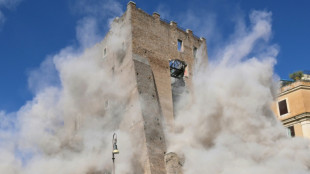
-
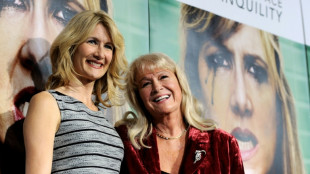 'Wild at Heart' actress Diane Ladd dies at 89
'Wild at Heart' actress Diane Ladd dies at 89
-
Xhaka lifts Sunderland into fourth after Everton draw

-
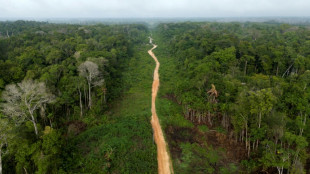 Brazil records biggest annual fall in emissions in 15 years: report
Brazil records biggest annual fall in emissions in 15 years: report
-
Victor Conte, mastermind of BALCO doping scandal, dead at 75: company

-
 Trial opens in 1st US civil case on 2019 Boeing MAX crash
Trial opens in 1st US civil case on 2019 Boeing MAX crash
-
Mixed day for global stocks as market digests latest AI deals

-
 Barrett brothers out of All Blacks' clash with Scotland
Barrett brothers out of All Blacks' clash with Scotland
-
Medieval tower partially collapses in Rome, trapping worker
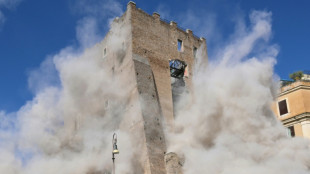
-
 Arsenal's Arteta says injured Gyokeres out of Slavia Prague tie
Arsenal's Arteta says injured Gyokeres out of Slavia Prague tie
-
Alonso says 'quality' Wirtz helped get him Real Madrid job

-
 US Fed's Cook warns inflation to stay 'elevated' next year
US Fed's Cook warns inflation to stay 'elevated' next year
-
Blue heaven: huge crowds salute Los Angeles Dodgers in victory parade

-
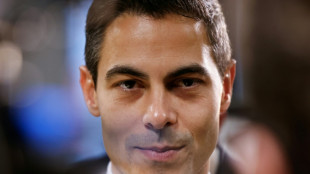 Dutch centrist Jetten clinches election win: final tally
Dutch centrist Jetten clinches election win: final tally
-
Mamdani extends olive branch to anxious NY business community

-
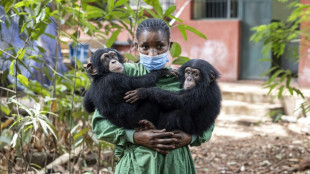 Sierra Leone chimpanzee sanctuary reopens after deforestation protest
Sierra Leone chimpanzee sanctuary reopens after deforestation protest
-
Shein bans sex dolls after France outrage over 'childlike' ones

-
 England full-back Steward doubtful for Autumn rugby clash with Fiji
England full-back Steward doubtful for Autumn rugby clash with Fiji
-
Bayern know how to 'hurt' PSG, says Neuer

-
 Rybakina downs Swiatek to reach WTA Finals last four
Rybakina downs Swiatek to reach WTA Finals last four
-
Ex-France international Ben Yedder to stand trial on rape charges

-
 Djokovic confirmed for ATP Finals, says Italian federation boss
Djokovic confirmed for ATP Finals, says Italian federation boss
-
Trent should be remembered for 'great' Liverpool moments, says Slot

-
 Stock markets diverge despite boost from AI deals
Stock markets diverge despite boost from AI deals
-
Prince William awed by Rio on climate-focused trip to Brazil
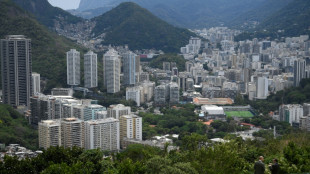
-
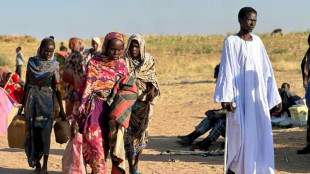 Violence in Sudan's El-Fasher could be war crimes, says top court
Violence in Sudan's El-Fasher could be war crimes, says top court
-
Rybakina downs Swiatek in WTA Finals

-
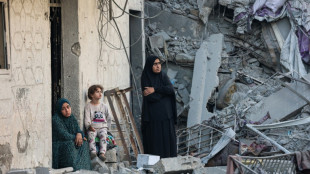 Turkey, Muslim allies say Palestinian self-rule key to Gaza future
Turkey, Muslim allies say Palestinian self-rule key to Gaza future
-
Tens of thousands shelter as typhoon slams into Philippines
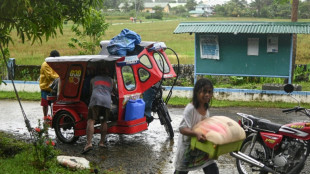
-
 Stock markets rise as tech sector buoyed by fresh AI deal
Stock markets rise as tech sector buoyed by fresh AI deal
-
Vitinha says PSG-Bayern Champions League clash will show who's 'best'


Bulgarian mussel farmers face risk, and chance, in hotter sea
Faced with rising Black Sea temperatures that suffocate his mussels, Bulgarian farmer Nayden Stanev has been forced to change his ways -- shifting his seeding schedule and harvesting at cooler depths.
Yet Stanev, a 56-year-old former marine commando, sees the fallout from climate change as both a threat and opportunity for his business.
As bad as it is for Bulgaria's mussel farmers, their peers in the Mediterranean Sea have had to deal with even higher water temperatures.
"We are better off," Stanev told AFP.
Though the Balkan EU member still trails far behind major Mediterranean mussel producers such as Spain and Italy, it has taken the lead in the Black Sea.
And it is less affected by marine heat waves, which have led to a sharp decline in Europe's mussel crop, according to experts.
But the warmer waters are still a threat to Black Sea mussel farmers.
"About 20 percent of the mussels didn't survive" this year, Stanev said gravely, as empty shells piled up on deck of his old diesel boat.
"Last year, it was a massacre -- 80 percent wiped out. The mussels literally suffocate in a sea that warms too fast," he added.
- 'Lasting change' -
Scientists say climate change is making marine heatwaves more frequent and powerful, and the Mediterranean region is warming faster than the global average.
In July, the average surface temperature of the Mediterranean Sea was 26.79C, the hottest ever for that month, according to research centre Mercator Ocean International.
During the same period, the average surface temperature in the Black Sea was 25.46C -- less than in the Mediterranean, though it is also warming.
"When temperatures approach or exceed about 26C -- a threshold associated with mass mussel mortalities -- for extended periods during peak market seasons, it creates disruptions in the supply chain," John Theodorou, an expert at the University of Patras in Greece, told AFP.
In the Black Sea, the surface temperature has risen by nearly two degrees in two years, according to Radoslava Bekova from the Institute of Oceanology at the Bulgarian Academy of Sciences.
"The sea is undergoing lasting changes," she told AFP.
She added prolonged warming periods, when the sea doesn't have time to cool down, weaken the mussels, making them more vulnerable to diseases.
- High demand -
Together with his six employees, Bulgaria pioneer Stanev is on deck at dawn to harvest and deliver his mussels, with the season reaching its peak at the end of August.
He set up his business more than 20 years ago in the bay of Cape Kaliakra, a prime location protected from currents.
His phone ringing incessantly, Stanev jots down the orders on a small notebook.
On this day, he has to deliver no fewer than 10 tonnes of mussels to cater to the demand of hundreds of restaurants and vendors in Bulgaria and neighbouring Romania.
After a short trip from shore, the crew reaches the 200-hectare mussel farm.
Black buoys float on the surface, with long tubular nets holding the shells attached to them.
The men work in silence with synchronised gestures: one pulls the nets out of the water, another cleans them and a third sorts the shells.
Mussel bags pile up, each containing about 800 kilogrammes, as cormorants scout for leftovers.
When the boat returns to the quay in the early afternoon, several refrigerated trucks are already waiting, along with villagers with empty buckets, eager to buy fresh mussels for their families.
While global production has continued to grow, it has been declining in the EU since 2018, according to data from the European Market Observatory for Fisheries and Aquaculture Products (EUMOFA).
About 356,500 tonnes of mussels were harvested in the EU in 2023 -- about 21 percent fewer than in 2018, according to EUMOFA data.
Spain led with 155,700 tonnes followed by Italy with 57,279 tonnes -- by comparison, Bulgaria accounted for about 1,100 tonnes.
While European production fell over that period, their value increased almost 50 percent, standing at roughly 463 million euros in 2023.
"This value gap has created opportunities for Black Sea mussel production," Theodorou said.
E.AbuRizq--SF-PST
